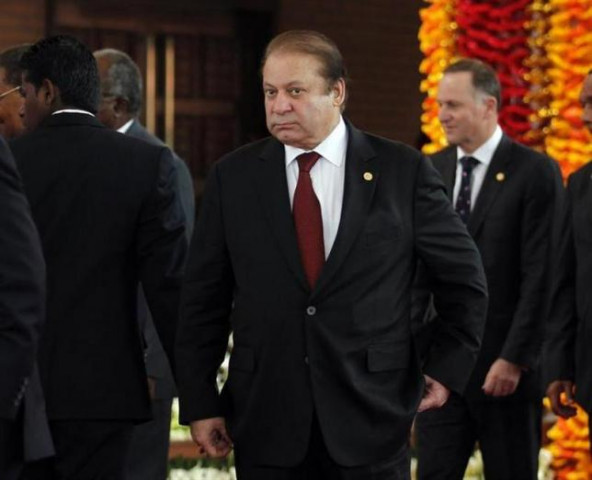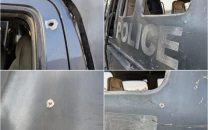Burden of proof rests with Sharifs, says Justice Khosa
SC will do everything to dig out the facts.

Crucial meetings expected on administrative, political and diplomatic matters. PHOTO: REUTERS
Justice Asif Saeed Khosa made the observation while referring to article 122 of the Qanoon-e- Shahadat Act, 1984 during case proceedings. “If someone accuses you of travelling without a ticket, then you are duty-bound to prove you have a ticket and are travelling legally,” he said while drawing a parallel to accusations against Prime Minister Nawaz Sharif and his family.
During Friday’s proceedings, the Supreme Court pondered over the extent of its powers to adjudicate the Panamagate case as the Pakistan Tehreek-e-Insaf’s legal team seemingly struggled to substantiate its earlier submissions.
“We will try to do everything to dig out the truth in the Panamagate case,” Justice Khosa said as the larger bench he heads discussed the all-important question in the case – how to actually uncover the facts?
Justice Khosa invoked article 184(3) of the constitution and said that the Supreme Court has ample power and jurisdiction when it comes to serving justice. “We are not powerless. We can ask members of the Sharif family to show complete records in order to justify the money trail,” he said. He also invoked article 161 of the Qanoon-e-Shahadat Act, which gives a judge the power to ask any question or order the production of any relevant material.
“The judge may in order to discover or to obtain proper proof of relevant facts, ask any question he places, in any form, at any time, of any witness, or of the parties about any fact relevant or irrelevant; and may order the production of any document or thing; and neither the parties nor their agents shall be entitled to make any objection to any such question or order, nor, without the leave of the court, to cross-examine any witness upon any answer given in reply to any such question,” states article 161.
Justice Khosa also observed that the Sharifs would be duty-bound to produce the complete record of the money trail if questions arose.
However, Justice Ejaz Afzal Khan observed that the Supreme Court is not a trial court and at this stage, they are not seizing the matter of inquiry. “We will go by the green book and law,” he said. Referring to article 13 of the constitution, he said no one can be compelled to produce evidence against self.”
He asked PTI lawyer Naeem Bukhari to satisfy the court about the documentary evidence purportedly establishing the opposition party’s stance on the London properties of the prime minister’s family.
Likewise, another judge Justice Azmat Saeed Sheikh also asked how the Supreme Court, being a constitutional court, could record evidences in this matter.
At this, Justice Khosa observed that the court is not asking for the recording of evidence. At the same time put questions for producing the complete record of the case before the bench.
Justice Gulzar Ahmad also observed that the court may ask respondents to file their affidavits along with available record and the matter can be decided on their basis.
The judges gave these observations when the PTI lawyer referred to the record of email as well as news clippings to establish that Maryam Nawaz was the beneficial owner of the London flats and that these properties were in the ruling family’s hands prior to 2006.
When Bukhari made this assertion, Justice Ejaz asked him to explain how ownership of the flats was transferred to Maryam.
Upon this, the counsel expressed inability to produce any document in this regard, adding that they tried their level best but were unable to get the record.
Likewise, when the PTI counsel submitted details of the money which Maryam got as a gift from her father and brother to establish that she is dependent, Justice Ejaz once again asked him to produce documentary evidence. “We appreciate your effort but we cannot rely on the information, which is being provided in piecemeal,” he observed.
Justice Azmat also asked the PTI lawyer to establish whether the Sharif family’s trust deed is disputed. “Is it registered under the law? Does it have a tax number?” he asked. The judge also asked whether any gift could be considered ‘benami’.
The case has been adjourned till Monday.
Published in The Express Tribune, January 7th, 2017.



















COMMENTS
Comments are moderated and generally will be posted if they are on-topic and not abusive.
For more information, please see our Comments FAQ